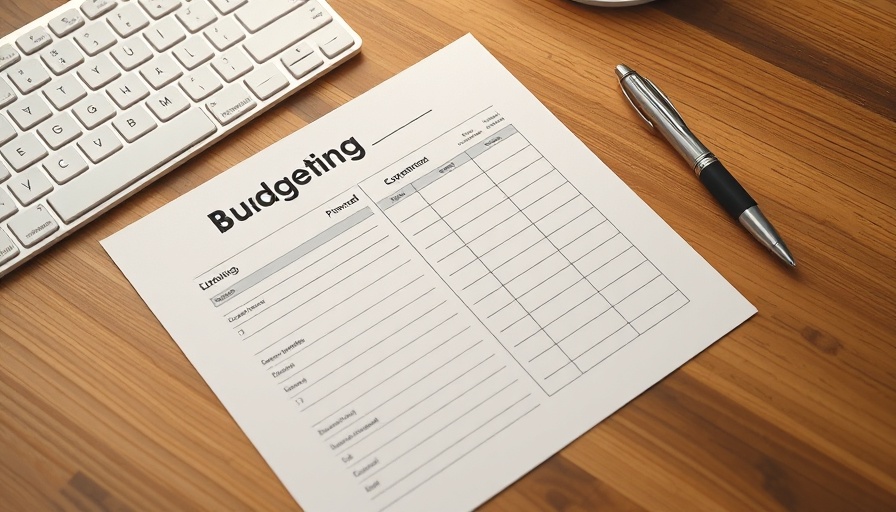
Understanding Inflation and Its Impact on Your Budget
Inflation is not just an economic term; it's a real-life challenge that many families are facing daily. With rising prices on essentials like food, gas, and utilities, it's crucial to understand how inflation affects your overall financial health. When your purchasing power diminishes, devising a budget that accommodates fluctuating costs becomes paramount.
Assess Your Budget to Identify Areas of Improvement
The first step to effective budgeting during inflation is a candid review of your current financial habits. Analyzing spending patterns over the past few months can shine a light on unnecessary expenditures. Consider employing a zero-based budget, where each dollar is assigned a specific purpose. This strategy helps prevent overspending and ensures greater control over finances.
Prioritize Essentials Over Luxuries
Given the strain inflation places on financial resources, prioritizing essential needs—like housing, food, and healthcare—over non-essential purchases is imperative. Channel your expenditure toward necessities, and seek to cut back on luxuries. This may involve canceling unused subscriptions or reviewing your service plans to avoid paying for features you don't use.
Debt Management: A Critical Component
Managing debt effectively becomes even more vital amid rising costs. If you find the burden of extra debt payments weighing you down, consider reducing those payments temporarily to maintain necessary cash flow. It's also worth exploring options like debt consolidation or refinancing to secure lower interest rates. Proactively managing student loan debt, credit card debt, or medical debts can pave the way to more sustainable financial practices.
Smart Savings on Essential Expenses
During periods of inflation, being strategic about spending can lead to significant savings. Start by planning meals around sales and utilizing bulk-buying strategies for non-perishable goods. Consider shopping at discount stores and opting for generic brands when possible to stretch your dollar further. Fuel savings can also add up; opt for gas reward programs, make fewer trips, and consider carpooling to avoid high fuel costs.
Building an Emergency Fund for Long-Term Stability
An emergency fund is a financial cushion that provides peace of mind during unexpected events. Aim to consistently save a small percentage of your income—regardless of how modest the amount might be. This practice not only bolsters your budget's resilience during inflationary periods but also prepares you for unforeseen circumstances.
Explore Budgeting Techniques That Work for You
Integrating various budgeting methods can further enhance your financial strategy. For instance, methods like the 50/30/20 rule can help categorize your spending effectively. This rule allocates 50% of your post-tax income to needs, 30% to wants, and 20% to savings. Finding a technique that aligns with your lifestyle is key to maintaining motivation and commitment to your budget.
Utilizing Technology for Financial Tracking
With the rise of budgeting apps, managing your finances has never been easier. These tools can connect to your bank accounts and provide real-time tracking of your expenses, helping you stay accountable. Additionally, subscription-tracking apps can alert you to services you might have forgotten about or are no longer using—allowing for easy cancellations that can save you money
Keep an Eye on Trends and Adjust Accordingly
Lastly, being aware of economic trends and observing your spending habits will enable you to refine your budget over time. Don’t hesitate to adjust your budget as circumstances change; flexibility is essential for effective financial management.
While inflation remains challenging for consumers, employing these strategies can help manage expenses and stabilize your financial health. Take charge of your budget today!
 Add Row
Add Row  Add
Add 



Write A Comment